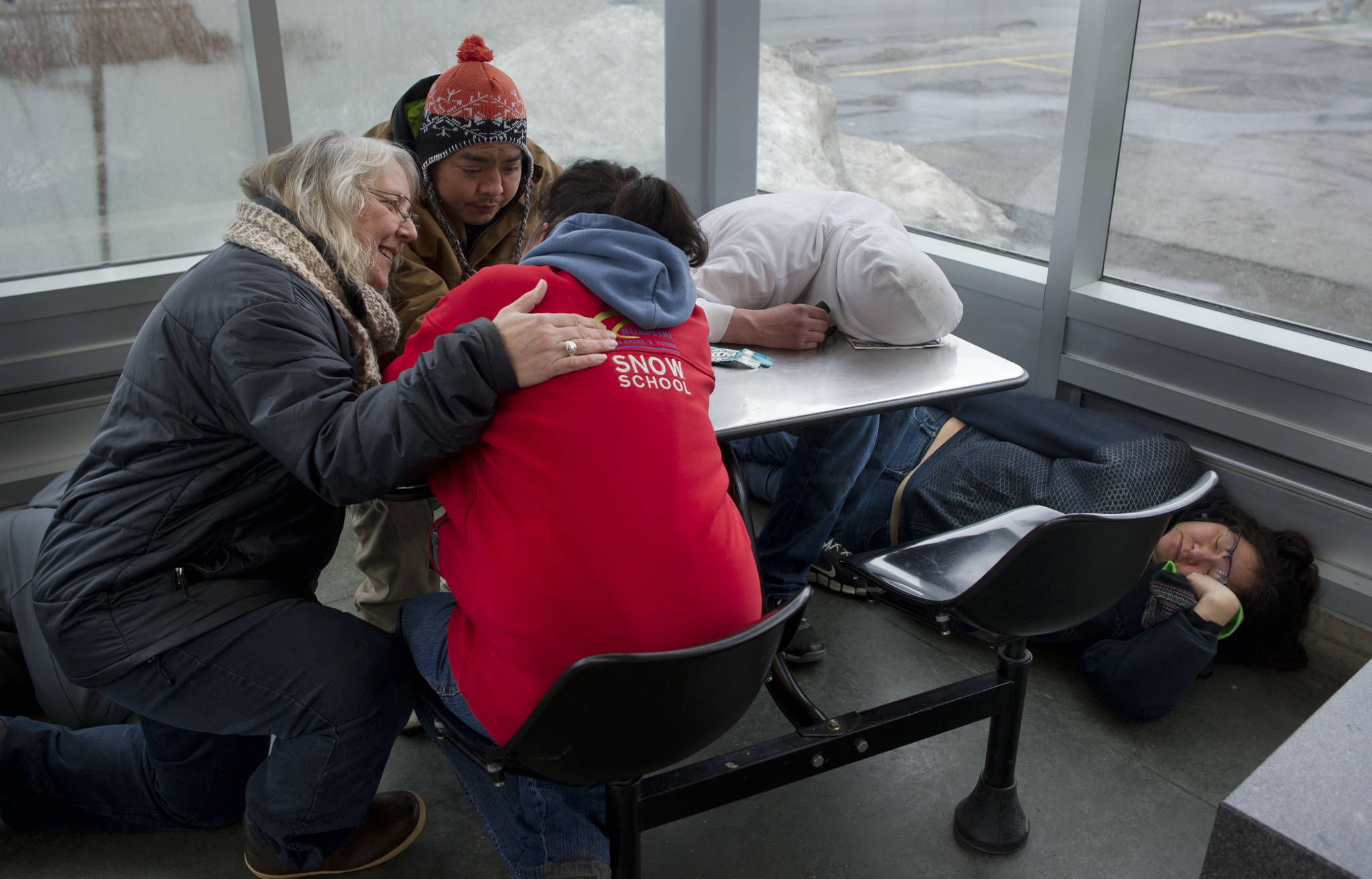With days getting shorter and temperatures starting to fall, it’s about to get even harder for people to sleep outside in Juneau.
The capital city has the highest rate of homelessness in the state, and though the new Housing First facility will take 32 people off the street over the next few weeks, there will still be dozens of people sleeping outside or in shelters this winter. A Point in Time Count earlier this year found 215 people were sleeping either on the street or in shelters in Juneau.
As discussed in Monday’s City and Borough of Juneau Assembly meeting, city officials are making preparations to get a warming center open this winter, where people can come in and sleep to get out of the cold. It came as one of the suggestions from the Assembly Task Force on Homelessness, which has been discussing various approaches to reducing homelessness in Juneau.
CBJ Housing Coordinator Scott Ciambor said that the Juneau Coalition of Housing and Homelessness (JCHH) came to the task force about getting a warming center up and running, saying that one of the organization’s strengths is training people.
“They would be more than willing to train additional staff on a contractual basis for a warming center during the winter months,” Ciambor said of JCHH, “estimating that there would be 100 nights or so below the temperature of 32.”
The JCHH is a group of local organizations including the Glory Hole shelter, the Juneau Alliance for Mental Health, Inc. (JAMHI), Polaris House, St. Vincent de Paul and others.
Ciambor said the cost of a warming center would be about $63,000 for staffing alone, with the city also having to cover liability and rental costs. In all, Ciambor said it would be about $75,000 for the city to open a warming center for 100 days this winter. This will also be the first full winter since the Assembly passed an ordinance forbidding people from camping and sleeping in doorways of downtown businesses. The ordinance went into effect in April.
City Manager Rorie Watt said he met with CBJ Finance Director Bob Bartholomew recently, and Bartholomew said the city could pull money from tobacco tax revenue. Bartholomew estimated that as much as $200,000 of that revenue could be used to fund recommended projects from the task force, Watt said.
The location of a possible warming center is another question that has yet to be answered. When the Bergmann Hotel closed its doors in March, the Salvation Army used its facility to house the evicted tenants. Ciambor said that city staff talked with Salvation Army leaders this summer, but that there’s currently a change in leadership going on for the local chapter and the interim staff members are hesitant to make any major commitments.
[Displaced Bergmann Hotel tenants seek shelter in middle of snowstorm]
Sometimes cities partner with local churches to provide warming centers, Ciambor said, and sometimes cities rent facilities out. Monday’s meeting served as a time to introduce the task force’s proposals, so a warming center is still in the early stages.
Assembly members agreed to discuss the possibility at its Oct. 16 Assembly meeting and its Oct. 23 Committee of the Whole meeting before opening it up for public comment at the Nov. 6 Assembly meeting. The tentative target for getting a warming center is Nov. 15.
Another recommendation was scattered-site housing, which is supportive housing in separate areas, as opposed to the Housing First setup which is one large facility. The task force estimates that this endeavor would cost the city $185,000.
Ciambor said that task force members and JCHH representatives know that a winter warming center will merely be a “Band-Aid,” and that the long-term solution is scattered-site housing or something similar.
“There’s no desire amongst the task force, the agencies or really anybody in the community to have to do a warming center indefinitely here in Juneau,” Ciambor said. “We should have enough emergency shelter beds already. We need to do the supported housing.”
• Contact reporter Alex McCarthy at 523-2271 or alex.mccarthy@juneauempire.com.

